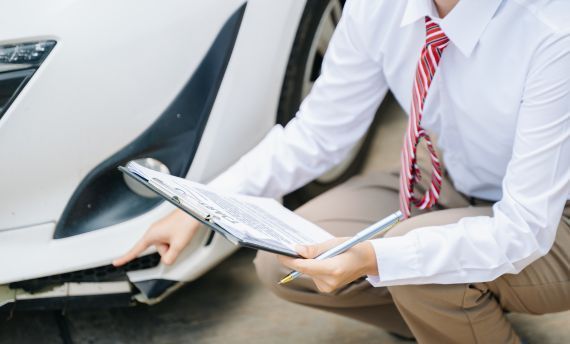
A motor vehicle accident can be a stressful and overwhelming experience, but knowing what steps to take afterward can help protect your health, legal rights, and financial future. Whether it’s a minor fender bender or a more serious collision, having a clear plan in place ensures you handle the situation responsibly and efficiently.
This guide outlines the steps Pennsylvania drivers should take after an accident, from ensuring safety to filing insurance claims.
1. Prioritize Safety
The safety of everyone involved is the most critical concern immediately after an accident. Follow these steps to ensure everyone’s well-being:
- Stop Your Vehicle: Pennsylvania law requires drivers to stop at the scene of an accident, even for minor collisions.
- Check for Injuries: Assess yourself, your passengers, and others involved for injuries. Call 911 if medical attention is needed.
- Move to Safety: If the vehicles are drivable and it’s safe to do so, move them to the side of the road to prevent further accidents. Turn on hazard lights and use cones or flares if available.
2. Call the Police
In Pennsylvania, you must report an accident to the police if it involves:
- Injuries or fatalities.
- Significant property damage.
- A hit-and-run situation.
Even if the accident seems minor, having a police report can be invaluable for insurance claims and legal protection. When the police arrive:
- Provide a factual account of what happened.
- Avoid admitting fault or speculating about the cause of the accident.
- Request a copy of the police report for your records.
3. Exchange Information
Exchange the following information with the other driver(s) involved:
- Full name and contact information.
- Driver’s license number.
- Vehicle make, model, and license plate number.
- Insurance company name and policy number.
If there are witnesses, collect their names and contact information as well.
4. Document the Scene
Thorough documentation can help support your insurance claim and protect you in case of legal disputes. Use your smartphone to:
- Take Photos: Capture images of all vehicles involved, any visible damage, license plates, skid marks, road signs, and traffic signals.
- Record the Scene: Note the time, date, location, weather conditions, and road conditions at the time of the accident.
- Write Down Details: Jot down a brief description of how the accident occurred while it’s fresh in your memory.
5. Notify Your Insurance Company
Report the accident to your insurance provider as soon as possible. Most companies require prompt notification to process claims. Provide the following details:
- A copy of the police report (if available).
- Photos and documentation from the scene.
- Contact and insurance information for the other driver(s).
Your insurer will guide you through the claims process and let you know what additional information or steps are required.
6. Seek Medical Attention
Even if you feel fine, it’s a good idea to see a doctor after an accident. Some injuries, such as whiplash or internal injuries, may not show symptoms immediately but could worsen over time. Having a medical record of your injuries can also be crucial for insurance claims or legal actions.
7. Understand Pennsylvania’s Insurance Laws
Pennsylvania is a choice no-fault state, meaning drivers can choose between no-fault or traditional fault-based insurance coverage. Here’s what that means:
- No-Fault Coverage: Your insurance pays for your medical expenses regardless of who caused the accident. Lawsuits for pain and suffering are limited unless the injuries are severe.
- Traditional Fault-Based Coverage: You can file a claim against the at-fault driver’s insurance for damages.
Check your policy to confirm your coverage type and understand how it affects your claim options.
8. File a Claim
When filing a claim, provide accurate and detailed information to your insurance provider. Here’s how the process typically works:
- Submit Documentation: Include the police report, photos, medical bills, and repair estimates.
- Work with Adjusters: An insurance adjuster may inspect your vehicle to assess damage.
- Repair Your Vehicle: Once the claim is approved, you can have your car repaired at an approved or preferred shop.
If your claim is denied or you’re unsatisfied with the settlement, consult an attorney for guidance.
9. Protect Your Legal Rights
Accidents can sometimes lead to legal disputes, especially if there are disagreements about fault or damages. To protect yourself:
- Avoid Admitting Fault: Even casual apologies can be misinterpreted as an admission of liability.
- Be Cautious with Statements: Only discuss the accident with the police, your insurer, or your attorney.
- Consult a Lawyer: If you’re facing legal action or need help navigating the claims process, seek professional legal advice.
10. Take Preventative Measures
While you can’t always avoid accidents, there are steps you can take to reduce the risk of future incidents:
- Follow all traffic laws and signals.
- Avoid distractions like texting or eating while driving.
- Maintain your vehicle, including brakes, tires, and lights.
- Carry a roadside emergency kit with essentials like flares, a flashlight, and a first aid kit.
Common Mistakes to Avoid After an Accident
To ensure a smooth recovery process, steer clear of these common missteps:
- Failing to call the police or report the accident.
- Neglecting to document the scene thoroughly.
- Delaying medical attention or ignoring minor injuries.
- Providing incomplete or inaccurate information to your insurer.
- Signing documents or accepting settlements without reviewing them carefully.
How Bowman's Insurance Group Can Help
At Bowman's Insurance Group, we understand that dealing with an accident can be overwhelming. Our team is here to help Pennsylvania drivers navigate the insurance process, offering:
- Comprehensive Auto Insurance: Coverage for your vehicle, liability, and more.
- Guidance on Claims: Assistance with filing and managing claims for a smoother process.
- Unmatched Support: Personalized service to ensure your needs are met.
Related Resources
Final Thoughts
Knowing what to do after a motor vehicle accident can make a significant difference in how quickly and effectively you recover from the incident. By staying calm, following the proper steps, and working with your insurance provider, you can protect yourself legally and financially.
For more information about auto insurance or to get a free quote, contact Bowman's Insurance Group today. Let us help you get back on the road with confidence.













